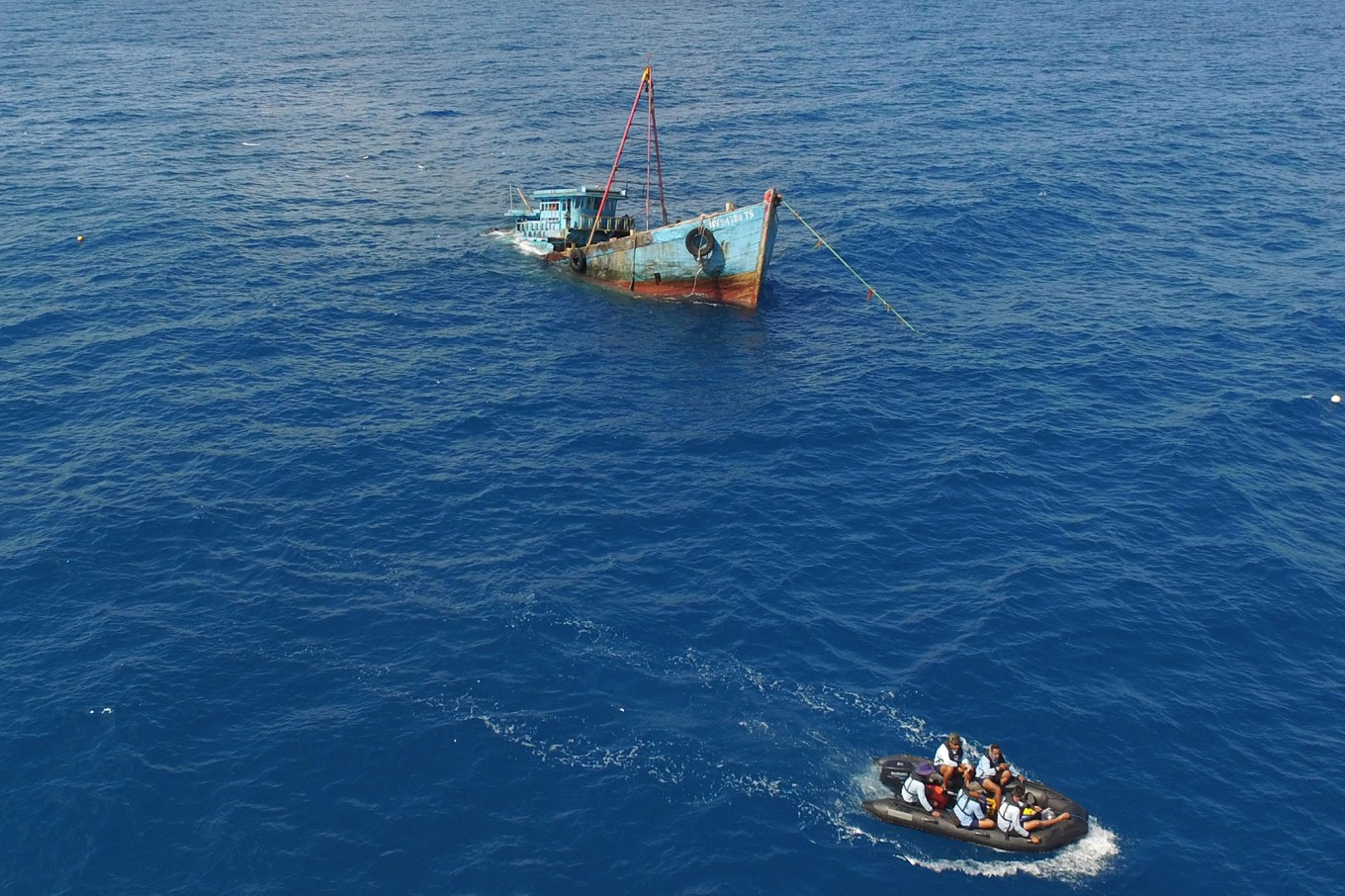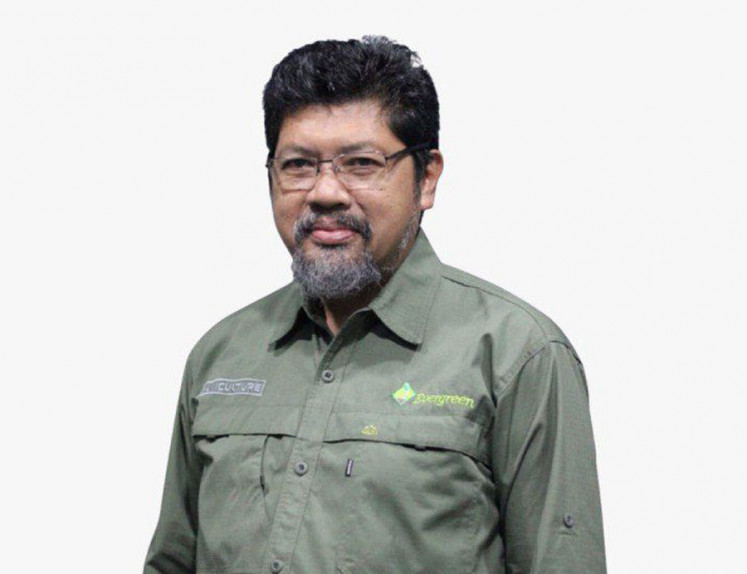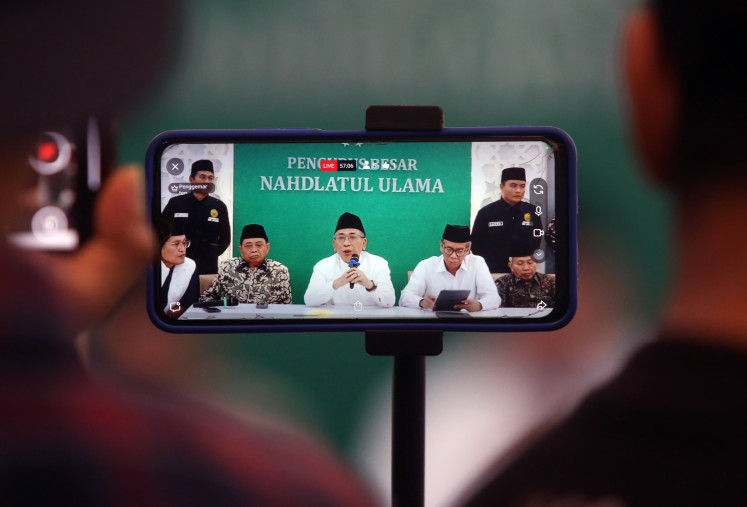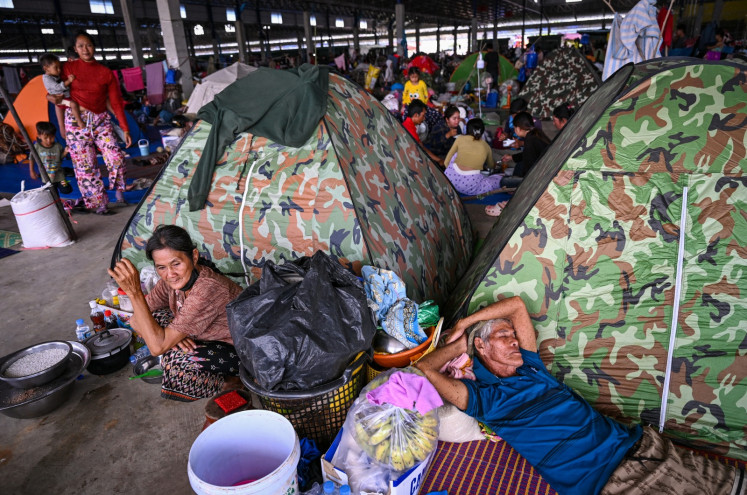Popular Reads
Top Results
Can't find what you're looking for?
View all search resultsPopular Reads
Top Results
Can't find what you're looking for?
View all search resultsRI-Philippine cooperation in fighting illegal fishing
Given the transnational aspect of IUU fishing, Indonesia can benefit from having a strong collaboration with other concerned countries in the region.One such country is the Philippines, which in recent years has adopted several measures to address IUU fishing within its borders.
Change text size
Gift Premium Articles
to Anyone
T
he Ministry of Marine Affairs and Fisheries under the leadership of Susi Pudjiastuti has made the fight against Illegal, Unreported and Unregulated (IUU) fishing and fisheries crimes a top priority.
This move is part of a region-wide trend in the Asia Pacific, which has seen coastal states making significant changes to their respective laws and regulations in order to more effectively address shared threats to living marine resources.
IUU fishing, in particular, is an area of common concern given the highly migratory nature of fish, crossing borders without “respecting” maritime boundaries of countries.
IUU fishing is intertwined with other crimes in Indonesia. In many cases, transnational organized crimes (TOC) such as people smuggling, trafficking in persons, forced labor and drug trafficking are being committed along with the IUU fishing activity. One very example is the Benjina Case in Maluku, where the “illegal fishers” where mostly laborers trafficked from countries such as Cambodia and Myanmar.
Given the transnational aspect of IUU fishing, Indonesia can benefit from having a strong collaboration with other concerned countries in the region.
One such country is the Philippines, which in recent years has adopted several measures to address IUU fishing within its borders.
In Indonesia, Minister Susi has taken a hard-line stance against IUU fishing. Her policy of sinking vessels conducting IUU fishing has been hailed nationally and internationally. The sinking vessel initiative is also complemented by the other measures including the establishment of two tasks forces, the imposition of a fishing moratorium, the analysis and evaluation of fisheries licenses, the imposition of a non-transshipment policy and the ban on unsustainable fishing gears. Indonesia has also adopted a National Plan of Action on IUU fishing as required by the International Plan of Action on IUU fishing.
Another breakthrough is making the fishing industry respect human rights values through the enactment of Minister of Marine Affairs and Fisheries Regulation No. 35/PERMEN-KP/2015 on System and Certification of Human Rights on Fisheries Business. It is also worth noting that Law No. 31/2004, as amended by Law No. 45/2009 on Fisheries, strictly imposes the twin penalties of imprisonment and fines on individuals and corporations committing IUU fishing.
However, the Fisheries Law and other relevant domestic regulations do not clearly address transnational criminal activities in the fisheries context.
Law No. 8/2010 on Countermeasure and Eradication of Money Laundering established the connection between money laundering and criminal acts in the marine and fisheries sector by identifying the latter as one of the possible predicate offenses of the former.
The adoption of this law followed up on Indonesia’s ratification of the United Nations Convention on Transnational Organized Crime (otherwise known as the Palermo Convention) on Dec. 15, 2000 by incorporating related provisions of the Convention.
Law No. 8/2010 connects money laundering to assets acquired from various criminal acts (including IUU fishing) which are subject to imprisonment for four or more years.
Even though the provision linking money laundering to marine and fisheries and crimes needs to be further tested, it is nonetheless an important milestone in combatting fisheries crimes within the context of TOC.
Like Indonesia, the Philippines has also made significant strides in combatting IUU fishing. In 2013, then President Benigno S. Aquino issued Executive Order No. 154 which formally adopted a National Plan of Action to effectively address IUU fishing (NPOA-IUU).
The country demonstrated its further commitment to the issue by amending Republic Act No. 8550 (the Philippine Fisheries Code of 1998) by passing Republic Act No. 10654 on 27 February 2015.
The amendments proactively addressed IUU fishing by drastically raising fines and imposing a range of administrative penalties in order to serve as more effective deterrents to the commission of fisheries crimes.
The Philippines has also amended Republic Act No. 9160 (AntiMoney Laundering Act of 2001) by passing Republic Act No. 10365. The amendment makes it possible to treat IUU fishing as a predicate crime in the commission of a money laundering offense.
This means that upon the proper request of relevant governmental authorities in a money laundering case, Philippine courts can now issue freeze or seizure orders on any monetary instrument or property related to IUU fishing.
The amendment also makes it possible to trace the proceeds of Philippines fisheries crimes given that under R.A. No. 9160, banks and other covered institutions are required to observe strict customer identification and record-keeping procedures, as well as comply with the obligation to report suspicious transactions to the proper authorities.
With the adoption of Law No. 8/2010, Indonesia can now apply measures similar to those in the Philippines. This is significant in view of the urgent need for Asia Pacific countries to align their respective policies on combating IUU fishing in the context of TOC.
In the coming years, both Indonesia and the Philippines should continue addressing any remaining gaps in their respective domestic legal frameworks as well as focus on identifying areas for cooperation and coordination.
***
The writers are 2016 United Nations-Nippon Foundation fellows at the UN Division on Ocean Affairs and the Law of the Sea, New York. Zaki is also a PhD student at the Australian National Centre for Ocean Resources and Security (ANCORS), University of Wollongong. Jacqueline is likewise a non-resident WSD Handa research fellow at the Pacific Forum CSIS. The opinions expressed are their own.
---------------
We are looking for information, opinions, and in-depth analysis from experts or scholars in a variety of fields. We choose articles based on facts or opinions about general news, as well as quality analysis and commentary about Indonesia or international events. Send your piece to community@jakpost.com. For more information click here.










